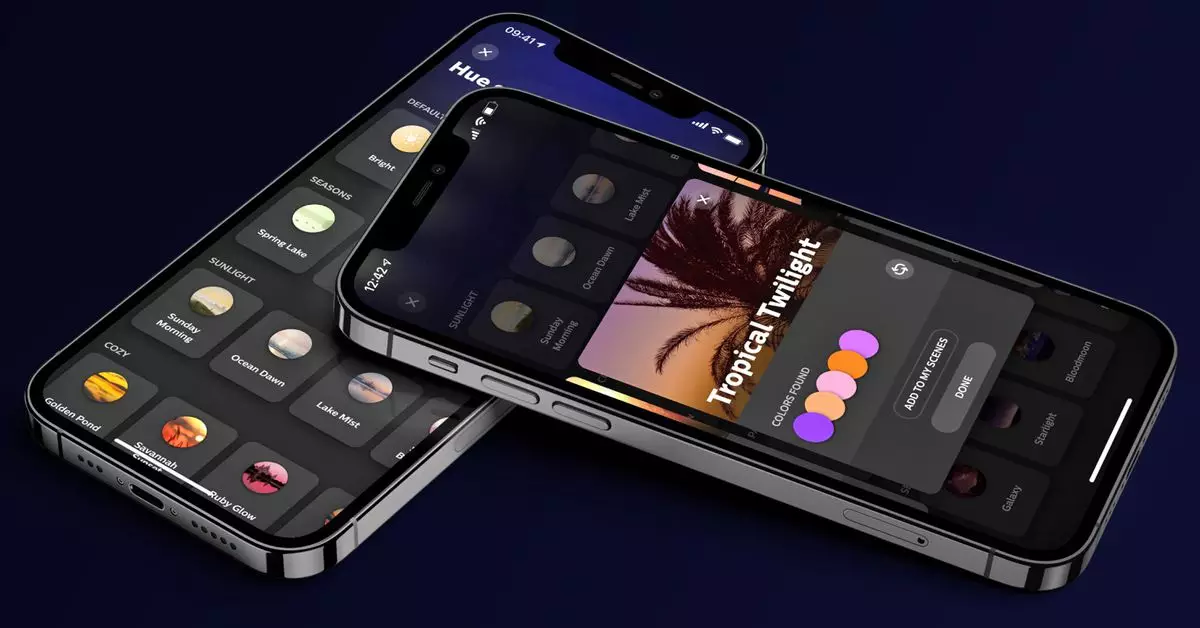In a significant advancement in smart home technology, Philips Hue has introduced an innovative AI-powered lighting assistant designed to enhance user experience by personalizing lighting scenes. This announcement marks a new chapter for smart lighting systems, as users can engage with their lighting setups in a more intuitive and customized manner than ever before. Attaching an emotional resonance and suitability to specific events, this new feature promises to transform mundane lighting into an expressive facet of home decor.
At the core of this new feature lies the ability to create individualized lighting scenes effortlessly. Users need merely type commands into the Philips Hue app or issue voice prompts to set their desired atmosphere. For instance, users can request lighting for a “garden party” or a “children’s birthday celebration,” triggering an array of tailored lighting options. The AI assistant not only curates options from a vast pre-existing gallery but can also generate novel lighting scenes based on the user’s request, opening up an exciting avenue for creativity in home lighting.
The Philips Hue AI Playground extends beyond basic functionality, embodying a seamless integration of generative AI into smart home environments. As detailed by Hueblog, users can explore various expressive lighting scenes, adjusting settings such as brightness and color to match their mood or aesthetic preferences. While Philips Hue is not the pioneer of AI-powered lighting, it stands out with its incorporation of both text commands and voice inputs, offering a broader range of accessibility compared to competitors like Govee and Nanoleaf, who focus mainly on voice commands or typed prompts, respectively.
An essential aspect of the new Philips Hue lighting assistant is its compatibility with all existing Hue lights, making this new technology accessible to a broad user base. While the initial rollout is anticipated in the first quarter of 2025, more details regarding specific features and enhancements will likely emerge as the launch date approaches. This degree of inclusivity builds customer loyalty and encourages those already invested in the Philips ecosystem to explore the new functionalities without needing additional investment in new hardware.
In addition to this groundbreaking AI feature, Philips Hue has made strides in other areas of its product line. The newly announced Philips Hue Sync TV app, which is now compatible with LG TVs, promises to elevate the home viewing experience by synchronizing lighting with on-screen content. Furthermore, the release of the Philips Hue Datura ceiling light, available for $299.99, adds innovative design elements to the smart lighting market, offering customizable colors and independent light controls.
The introduction of an AI-powered lighting assistant by Philips Hue underscores the company’s commitment to advancing smart home technology and enhancing user interaction. By allowing users to easily customize their ambiance, Philips Hue not only improves the aesthetic appeal of environments but also cultivates a sense of personal connection to one’s living space. As this technology continues to evolve, it is clear that the future of home lighting will be much more dynamic and personal, powered by the seamless integration of AI.


Leave a Reply